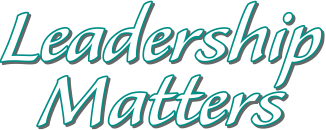
Cell phone rudeness, chronic lateness, bullying, unprofessional dress, poor customer service… the statistics on incivility are alarming and endless. We are painfully aware of the gross lack of civility. We are either subjected to it or witness acts of rudeness experienced by others. Instinctively, we know it’s a serious problem but can it be actually studied or quantified? Isn’t it just too subjective? Christine Porath and Amir Erez set about to create a model to study the effects of incivility on their subjects in an intriguing way.
In 2007, Porath & Erez asked the participants to perform identical tasks across three experiments. The variable for each experiment was the source and form of rudeness enacted.
- Experiment 1 – the experimenter was rude to the participants by belittling their reference group after one of the participants was late for the experiment.
- Experiment 2 – a stranger that the participants encountered on the way to the study treated them uncivilly.
- Experiment 3 – Porath & Erez simply asked the participants to think about how they would react to various types of rude behavior.
In each of the experiments, the participants were measured according to performance; creativity and helping behaviors. To measure performance, the participants were asked to solve anagrams and to brainstorm the many uses of a brick.
The researchers found that even a one-time, relatively low-intensity incident, the participants who had been treated rudely were not able to perform as well on these cognitive tasks. The same occurred when participants were asked merely to imagine an uncivil act/event. In both cases, they lost task focus and their performance plummeted. Their ability to come up with creative ideas for the brick was badly affected, too. So why was creativity impaired as a result of rudeness?
Creativity was once believed to happen in a flash but now scientists believe there is a level of concentration and juggling of ideas that is needed. However, when rudeness is experienced, the cognitive resources are reduced as well as attention to the task at hand. Consequently, the working memory is overloaded and creativity goes down as a result.
Another interesting discovery was the fact that those who were treated with rudeness were less inclined to be helpful towards others. In Experiment 1, the experimenter was rude to a participant and when he dropped something, only 35% of the group were willing to pick it up. When the group had experienced rude behavior from an outside source in Experiment 2, this too adversely affected their desire to help one another. So why retaliate towards those who were innocent, in this case the experimenter and one another in the group?
Generally, when people don’t feel respected, they tend to shut down or use up other valuable cognitive resources to make sense of their environment. It’s like they are unable to leave those feelings at the “door”. Rudeness has a spillover effect. And incivility harms innocent bystanders. This has important implications in the workplace because by simply witnessing rudeness will tend to reduce one’s performance, creativity and helpfulness. It may even lead to aggressive thoughts.
What can be done to mitigate these challenges in organizations knowing that incivility can occur both within and outside of the workplace? First of all, civility needs to become a key leadership skill. Whether the CEO or a Girl Scout Leader, others choose to follow you; listen to you; interact with you based on your personal character traits. Grow this leadership skill with the following techniques:
Respect for self & others
Respect really means acknowledging another person`s humanity; acknowledging that though we may not understand their words or actions, and no matter what their circumstances, age or ability, they are worthy of being treated with dignity and as much understanding as we can manage.
Responsibility
Civility means you acknowledge your angry/frustrated state of mind and take responsibility for addressing it. Your responsibility is to manage your feelings and control your behavior. No one should be on the receiving end of your bad temper. It’s the end of the “blame game”.
Awareness
This simply means noticing the impact your thoughts, words and deeds have on you. Conversely, are you paying attention to the other person’s expressions? Body language? What they are saying?
Non-judgement
Each human being is a package of completely unique perceptions and experiences. We simply don’t have access to the knowledge that has made them who they are. For that reason, we never judge a person, ever. Besides, we aren’t always aware of what motivates us either.
Intention towards clear communication
Simply put, every communication should always have a civil outcome. Your intention could be to resolve a situation; ease someone’s experience; make someone feel better; or explain yourself in a respectful way when necessary.
More rules & regulations coming from HR won’t help the situation of an uncivil workplace. The only solution is consistent, preemptive efforts to build the core value of civility as immunization against the disease of rudeness both at home and in organizations.
Tags: business, civility, communication

Check out our Etiquette for Kids store!
Safe, online ordering!

